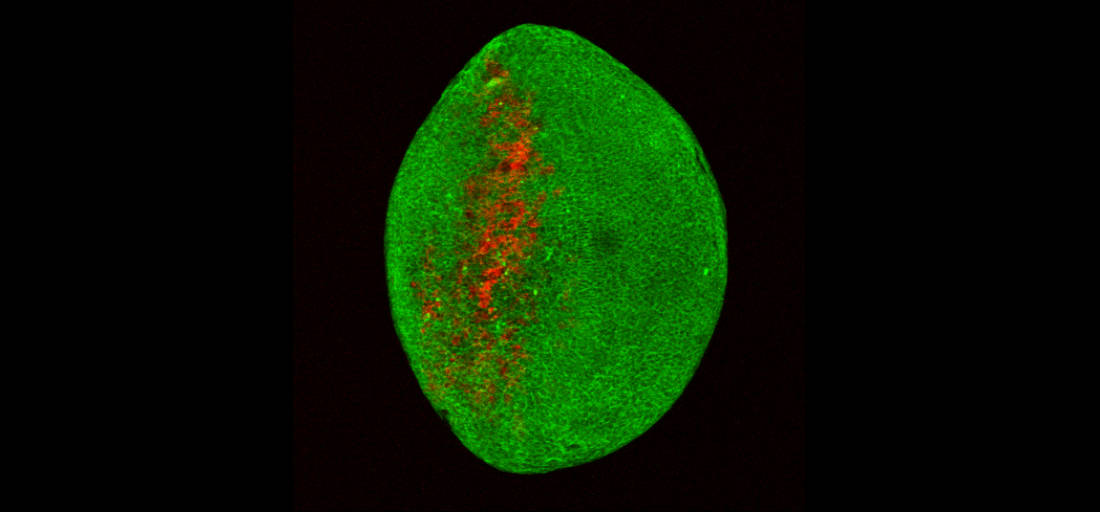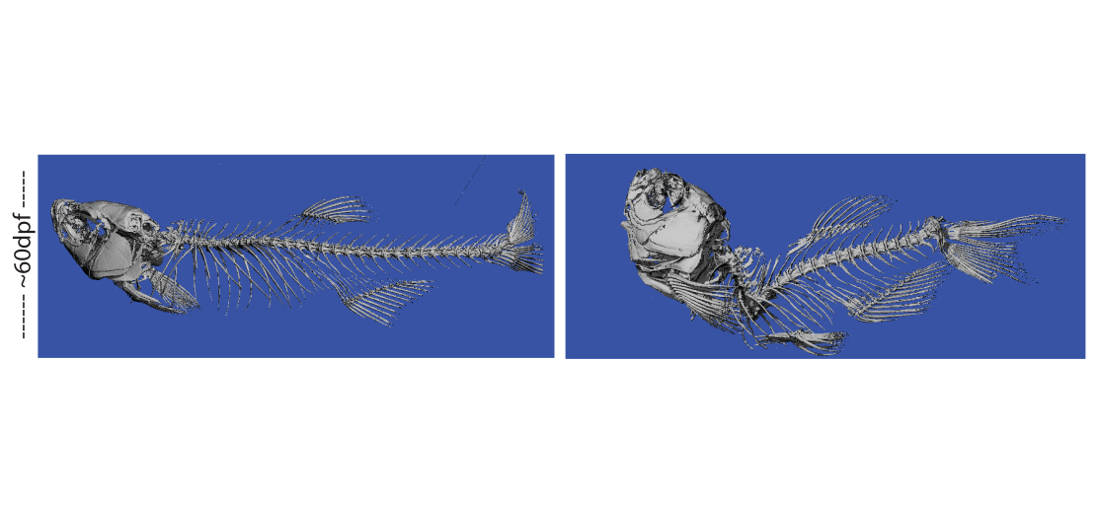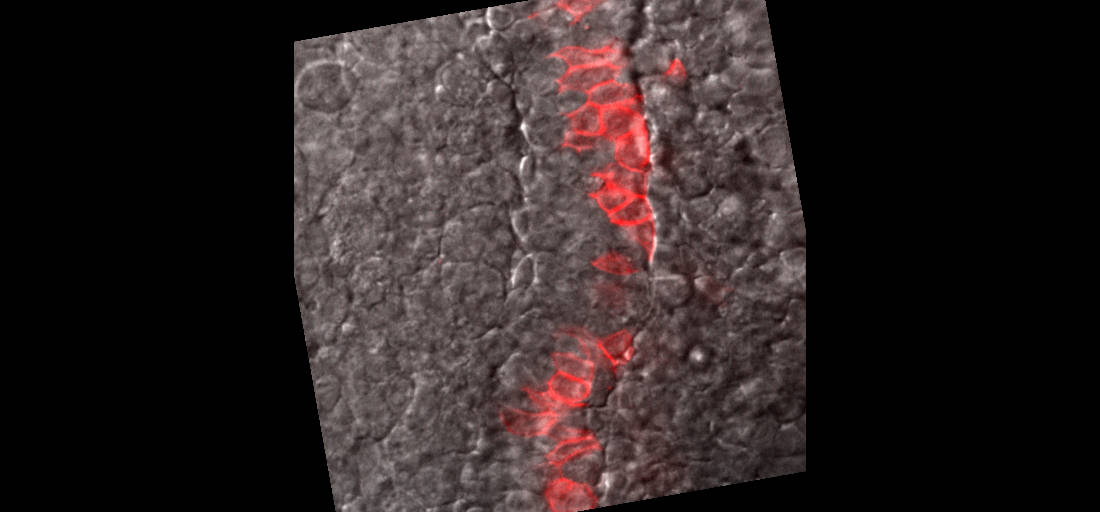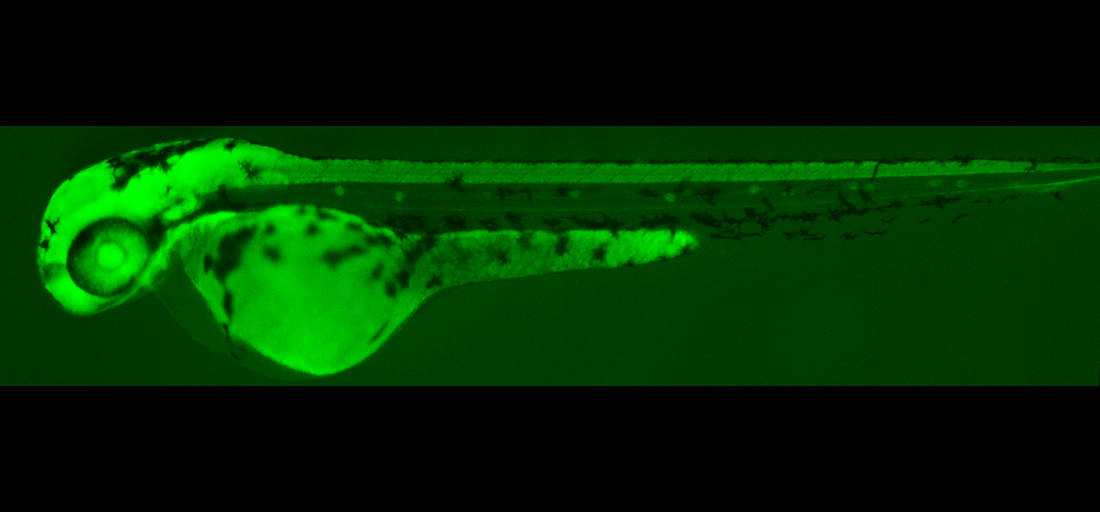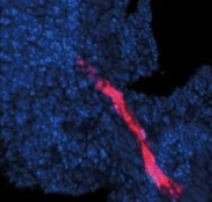We are investigating the cellular and molecular genetic mechanisms underlying vertebrate gastrulation, a crucial period of embryogenesis during which the germ layers are formed and then shaped into the vertebrate body plan with organ rudiments. During gastrulation, a series of inductive events that specify cell identities and massive cell movements fashion the body plan. The complex and dynamic nature of gastrulation makes it a challenging but intellectually fascinating object of study. In humans, 25-50% of pregnancies end in early miscarriages of largely unknown genetic origin. Moreover, the molecular regulation of tumor growth and metastasis show striking parallels to those underlying gastrulation movements, underscoring the practical significance of gastrulation research.
We are addressing the mechanisms of gastrulation in the zebrafish (Danio rerio), a system that affords a powerful combination of forward and reverse genetic analyses with embryological, cellular and molecular methods and also in human embryonic stem cells. We are also employing embryonic stem cells and tumor cell lines to test whether the new genes and mechanisms we implicate in zebrafish gastrulation are also involved in human development and disease. Our current experiments are focused on the roles of the Wnt, Wnt/Planar Cell Polarity, Stat3 and G-protein coupled receptor signaling pathways and epigenetic factors in the regulation of embryonic polarity and gastrulation movements.
Click here for current projects >>
Recent News
 |
|
|
||
Welcome to Konrad Kulesza, Visiting ResearcherKonrad Kulesza joined the Solnica-Krezel lab in July 2024 as a Visiting Researcher.
Read More >> |
Welcome to Tori Spencer, Research Technician ITori Spencer joined the Solnica-Krezel lab in June 2024 as a Research Tech I.
Read More >> |
Solnica-Krezel Lab LunchThe Solnica-Krezel lab enjoyed lunch at Panorama Restaurant inside the St. Louis Art Museum on June 18, 2024.
Read More >> |
||
|
|
 |
Photo Coming |
||
Welcome to Dwayne Johnson, UndergradDwayne Johnson joined the Solnica-Krezel lab in May 2024 as an Undergrad. Read More >> |
Welcome to Simone Schindler, Research SpecialistSimone Schindler joined the Solnica-Krezel lab in May 2024 as a Research Specialist. Read More >> |
Welcome to Nick Swarts, UndergradNick Swarts joined the Solnica-Krezel lab in October 2023 as an Undergrad. Read More >> |
||
|
|
|
|
||
New PublicationKohler JN, Legro NR, Baldridge D, Shin J, Bowman A, Ugur B, Jackstadt MM, Shriver LP, Patti GJ, Zhang B, Feng W, McAdow AR, Goddard P, Ungar RA, Jensen T, Smith KS, Fresard L, Alvarez R, Bonner D, Reuter CM, McCormack C, Kravets E, Marwaha S, Holt JM, Worthey E, Ashley EA, Montgomery SB, Fisher P, Postlethwait J, De Camilli P, Solnica-Krezel L, Bernstein JA, Wheeler MT Read More >> |
New PublicationSignaling mechanisms that direct cell fate specification and morphogenesis in human embryonic stem cells-based models of human gastrulation Stringa B, Solnica-Krezel L Read More >> |
New PublicationLeid J, Gray R, Rakita P, Koenig AL, Tripathy R, Fitzpatrick JAJ, Kaufman C, Solnica-Krezel L, Lavine KJ
Read More >> |
||

